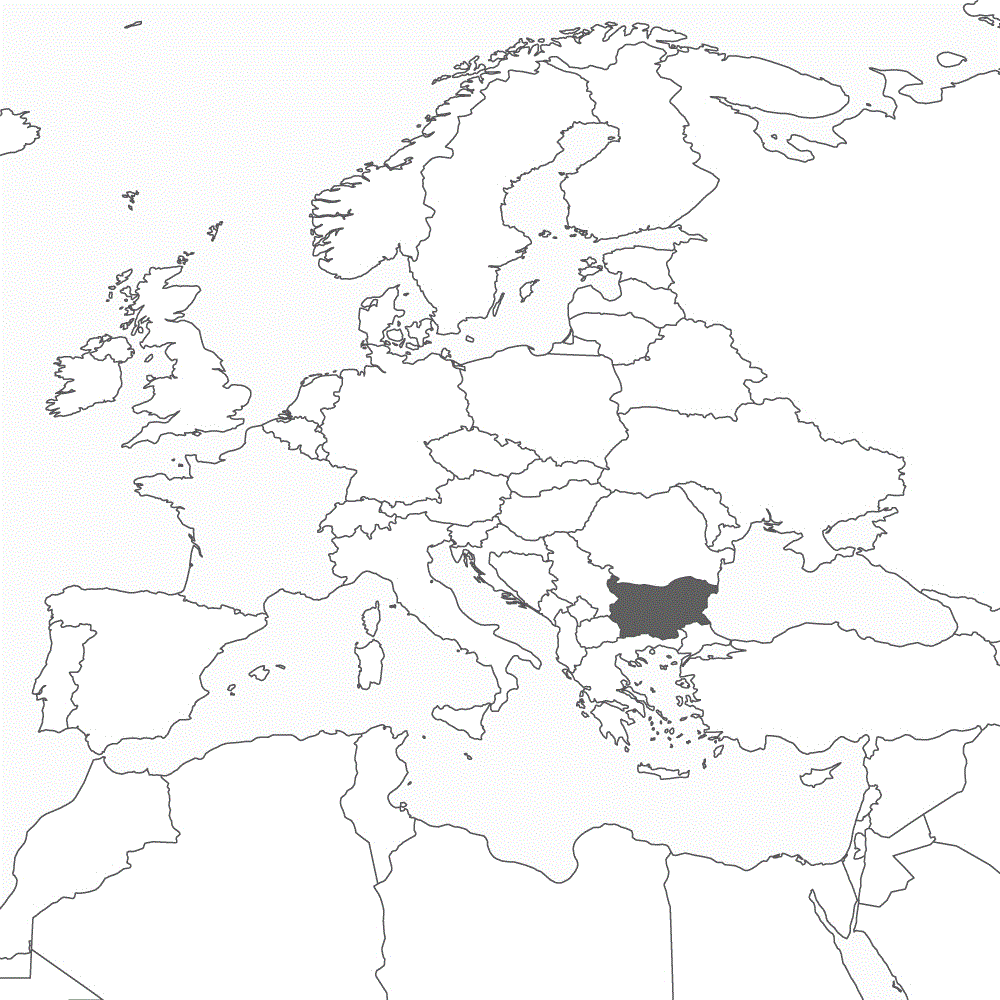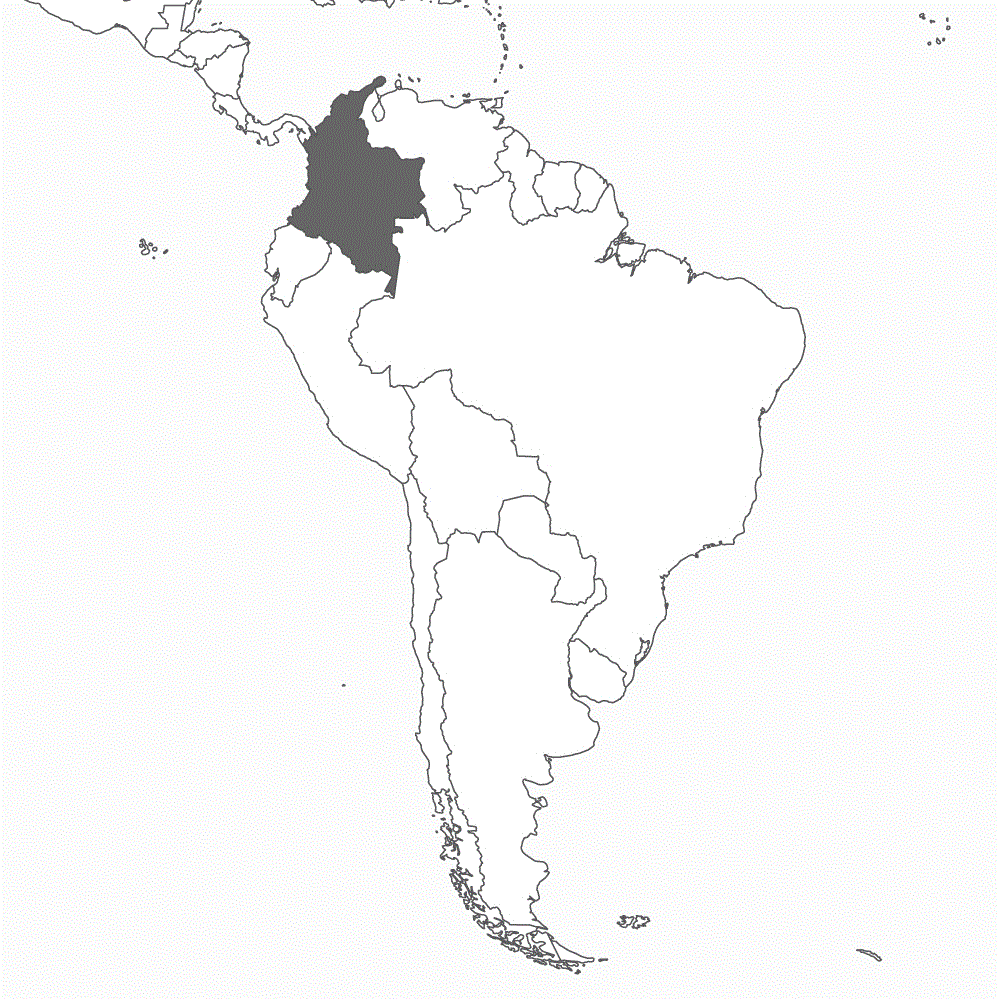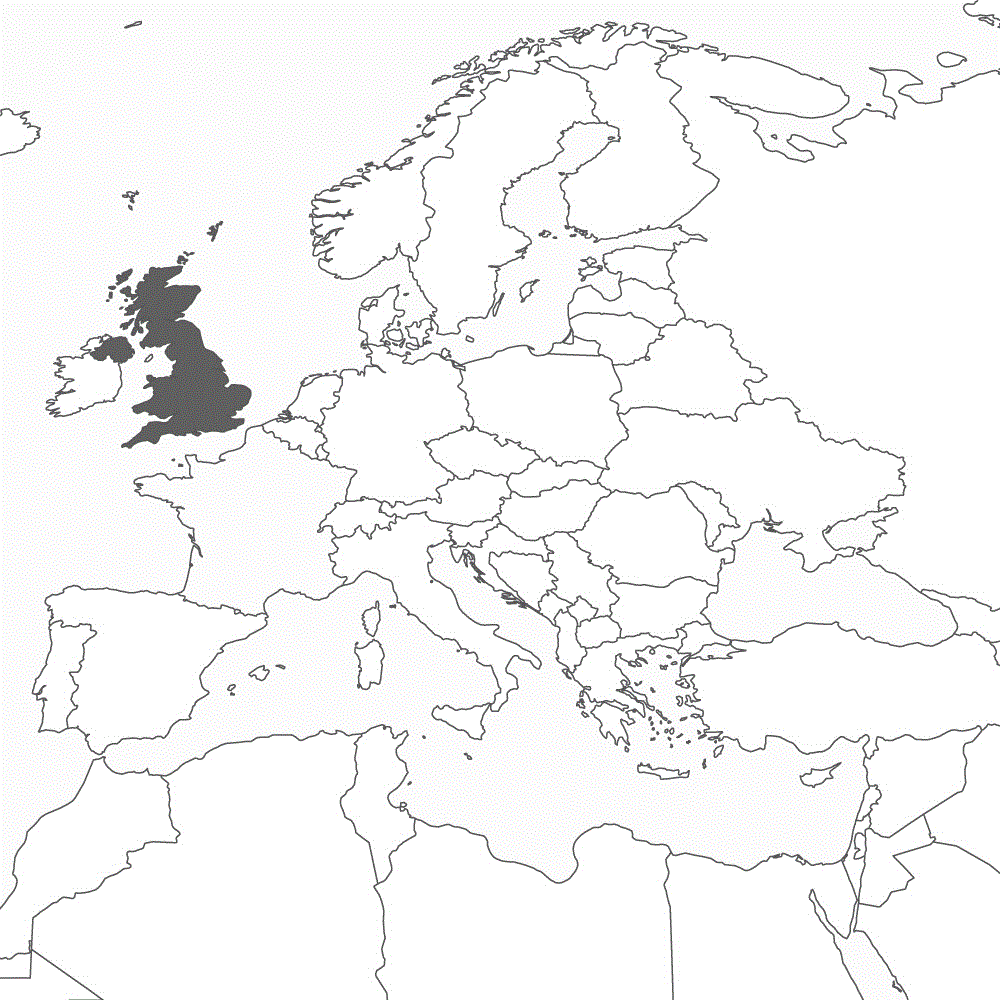Germany’s Traditional Partner (II)
Already since its independence, Bulgaria’s history has been closely linked to Germany’s. The country was allied to Berlin in both World War I and II.
BERLIN/SOFIA (Own report) – A party founded and formed in close cooperation with Germany’s CDU/CSU is leading in the run-up to next Sunday’ parliamentary elections in Bulgaria. The GERB party of former Prime Minister Boyko Borisov can expect up to a quarter of the votes. Currently GERB is, however, largely isolated due to corruption allegations. Bulgaria can look back on a long history of close collaboration with Germany, dating back to the era of the German Empire. Already at that time, the political as well as economic ties had been were very close. Bulgaria participated in World War I on the side of the Central Powers. After the war, leading Bulgarian military commanders and state representatives fled into exile in Germany. At the time, segments of the German right had praised Bulgarian politicians for their open resistance to the peace treaties (“Paris Dictate”). Soon, bilateral relations regained momentum, particularly mediated initially through the rapid restoration of German-Bulgarian economic relations, which also formed the basis for Bulgaria’s cooperation with the Nazi-Reich. Read more
“Thrive in War”
European think tank warns against state fragmentation and a criminalized war economy in event of a long war in Ukraine.
BERLIN/KIEV (On report) – A current statement from the European Council on Foreign Relations (ECFR), a think tank headquartered in Berlin, warns that Ukraine may succumb to state fragmentation and a “criminalized war economy.” The statement contests key demands of the strategy paper, entitled „Survive and Thrive,” also recently published by the ECFR, which sets the tone for a “long war” in Ukraine. It suggests investing more than €100 billion in the complete replacement of Ukrainian weaponry stocks with state-of-the-art Western-designed weapons. In addition, Ukraine should be rapidly integrated into the European single market. In contrast, the authors of the current statement raise the objection that, in this case, widespread impoverishment in Ukraine would be expected. The poverty rate in the country is already soaring to 40 percent this year and presumably to 58 percent next year, while Western states are egging Kiev on in the war, while not even beginning to cover the huge state deficit that could lead to collapse. Read more
Producers of Hunger
Berlin ignores UN warning that Western policy of sanctions leads to fertilizer shortages and subsequently to a dramatic aggravation of the global food crisis.
BERLIN/NEW YORK (Own report) – The German government ignores UN warnings that the Western policy of sanctions could lead to dramatic fertilizer shortages and soon escalate the global food crisis. Sanctions against the Russian financial and transport sectors could massively obstruct fertilizer exports. Prior to the war, Russia and Belarus produced nearly 20 percent of all global fertilizers. In addition, the cost of fertilizer production has spiked sharply worldwide due to the dramatically skyrocketing gas prices provoked by the policy of embargoes. The number of factories forced to shut down production is also growing in Europe. Whereas European farmers must face escalating costs but, if necessary, can cover their needs through expensive foreign purchases, this option is non-existent in poorer countries, for example on the African continent. In those countries, food production could slump by more than one fifth, solely due to fertilizer shortages. On Tuesday, UN Secretary General António Guterres has again warned of the consequences. Berlin doesn’t feel concerned and maintains the sanctions. Read more
“Prepared to take the Lead”
Influential German daily offers constructive assessment of Berlin’s growing claims to “German leadership” in Europe and “European leadership” in the world.
BERLIN (Own report) – One of the most influential German dailies is offering a sort of constructive assessment of the German government’s repeated claims to leadership at EU and global levels. These claims to leadership are not new. Already more than ten years ago, the chairman of the CDU/CSU parliamentary group, Volker Kauder, had spoken of a "Zeitenwende” (historical turning point) and openly declared that Berlin must "lead Europe into a new era." For several months, a growing number of Berlin’s top politicians – including federal minsters – have again been forging ahead and declaring, like Foreign Minister Annalena Baerbock, “we are prepared to take the lead.” To implement the claim to leadership, German Chancellor Olaf Scholz is calling for the introduction of decision-making by majority rule in EU foreign policy. This will hardly work, according to the conservative Frankfurter Allgemeinen Zeitung: Some EU states have already balked at implementing less stringent decisions on the redistribution of refugees within the Union. Recently, Berlin has all too often limited itself to “demanding allegiance.” If it seeks success in the future, it must proceed in a “cooperative” manner. Read more
Après nous le déluge (III)
In enforcing the EU coal embargo against Russia, Germany has ramped up coal imports from Colombia – triggering protests from indigenous communities.
BERLIN/BOGOTÁ (Own report) – Germany's move to expand coal imports from Colombia to compensate for the loss of Russian coal under EU sanctions has sparked fresh protests around a notorious Colombian mine. The El Cerrejón mine and its operator Glencore have been sharply criticized for many years for human rights violations and severe environmental damage caused by mining practices in the region. German energy utilities are among the companies sourcing coal from El Cerrejón. Glencore was in fact considering closing the mine last year, but this is now off the table. The EU's embargo on Russian coal has driven up prices, which is why El Cerrejón is once again generating higher profits. Germany has also ramped up coal imports from Colombia. While the German government claims Glencore is now complying with human rights and environmental standards, local actors disagree. New protests, mainly by indigenous communities, against coal mining began in the region at the beginning of September. According to a representative of the indigenous Wayúu community, coal exploitation has only led to “contamination, environmental degradation and health problems”. Read more
The West against the Rest (II)
In her State of the Union Address, EU-Commission President Ursula von der Leyen orients the West toward the formation of blocks. Non-Western alliances (BRICS, SCO) are gaining support.
BRUSSELS/SAMARKAND (Own report) – In its power struggle against Russia and China, the EU is aiming at the formation of a global bloc, seeking to comprehensively expand the Western bloc and to move against foreign powers’ “Trojan horses” at home, according to yesterday’s State of the Union Address by Commission President Ursula von der Leyen. The transatlantic bloc, which includes some Asia-Pacific nations, will thus be given the positively connotated label of “democracies.” It is to include as many African and Latin American nations as possible and juxtaposed with a non-western bloc, which will be given the negatively connotated label “autocracies.” While the EU is fostering the formation of a bloc, in the non-Western “rest” of the world – i.e., three quarters of all nations – new alliances are forming, seeking a multipolar international order. Besides Russia and China, these include India Brazil and South Africa. Diverse countries such as Argentina, the United Arab Emirates and Indonesia are seeking to join BRICS or SCO (Shanghai Cooperation Organization). Read more
“We are a Leading Power”
German defense minister Lambrecht declares Germany a “leading military power.” National Security Strategy to ensure clout. Lambrecht plans annual “National Security Day.”
BERLIN (Own report) – "Germany's size, its geographical situation, its economic power — in short, its clout — makes us a leading power,” declared German Minister of Defense Christine Lambrecht. As Lambrecht affirmed yesterday in a speech to the German Council on Foreign Relations (DGAP), Germany is "a leading power ... also in the military sphere." In the future, the Bundeswehr must play “a more important role in our political thinking and action.” In her speech Lambrecht focused on the new National Security Strategy that the government plans to adopt still this year. The strategy, being drafted under the auspices of the foreign ministry, reflects on a national level the EU’s “Strategic Compass” – a sort of military doctrine – and NATO’s new Strategic Concept. Since the Strategy’s implementation will entail considerable costs, it is necessary to win broad public acceptance – for example by introducing a “National Security Day.” The ambitious plans are in stark contrast to the failure of German military missions over the past few years. Read more
The Ally‘s Instability
Experts predict “political instability” in the USA and new transatlantic tensions, while in the power struggle against Moscow, Berlin is more dependent on Washington than ever before.
BERLIN/WASHINGTON (Own report) – German foreign policy experts warn of new tensions in the transatlantic alliance and point to the looming decline of the United States. That society is becoming more and more divided, according to the recent issue of the leading German periodical on foreign policy (“Internationale Politik”). Whereas the Republicans are increasingly successful in advancing their “right-wing conservative agenda” with the help of the Supreme Court, the Democrats can hardly push through their agenda “despite congressional majorities.” If the Republicans win in the November midterm elections and in the presidential elections in two years, “political instability” or even “constitutional crises” are “realistic scenarios”, Internationale Politik predicts. This could also affect foreign policy. Germany’s most important global ally would thus be threatened with internal upheavals – at a time, when the escalating power struggle against Moscow is driving Berlin more than ever before into political and economic dependency on Washington. Read more
The Next Trade War
In the EU, threats are made to unleash a trade war against Great Britain over the Northern Ireland protocol dispute. The self-inflicted damage would add to the damage already provoked by anti-Russia sanctions.
BERLIN/BRUSSELS/LONDON (Own report) – The EU may be at the threshold of its next trade war, according to remarks pertaining to today’s appointment of Liz Truss as the next Prime Minister of the United Kingdom. It is caused by the dispute between Brussels and London over the Northern Ireland protocol, which, becoming effective in the aftermath of Brexit, imposes the establishment of a customs border between Great Britain and Northern Ireland, obligating London to comply with single market regulations in Northern Ireland. Given the fact that, until now, the EU has only been willing to allow minor corrections to the protocol, even though it is provoking serious tensions in Northern Ireland, the British government is preparing to institute changes unilaterally. It has been reported that Truss could suspend parts of the protocol soon after taking office. Such a move could provoke a “trade war” between the EU and Great Britain, Katarina Barley (SPD), Vice President of the EU Parliament, was quoted to have said. The damage that would ensue from that trade war, would add to the severe damage inflicted on the economies of Germany and the EU from their sanctions on Russia. In addition, because of the power struggle with Beijing, there is also a danger of a slump in business with China. Read more
The West’s Limited Narratives
Berlin-based think tank warns against trying to internationally isolate China. In Africa, Asia and Latin America, Beijing is appreciated as cooperation partner and quite popular.
BEIJING/BERLIN (Own report) – A Berlin-based think tank, specialized on China, warns against trying to internationally isolate the People’s Republic, as with Russia. Attitudes towards China diverged widely from “mainstream narratives” in the western world, according to a study by the Mercator Institute for China Studies (MERICS). It is of major importance to understand how “actors outside the usual grouping of rich, liberal market economies” view the shifting global dynamics, and how they think about Europe. In fact, the Western public’s extremely negative perception of China is generally not shared outside the West. On the contrary, sometimes the People’s Republic enjoys an even greater popularity than the United States. Non-western elites usually appreciate Beijing, because it does not lecture governments in Africa, Asia and Latin America and because the Chinese market and Chinese investments offer huge opportunities. If the EU does not want to fall behind Beijing, it must take vigorous action, according to MERICS. Read more
GERMAN-FOREIGN-POLICY.com
Information on German Foreign Policy: News + Interviews + Analyses + Background







